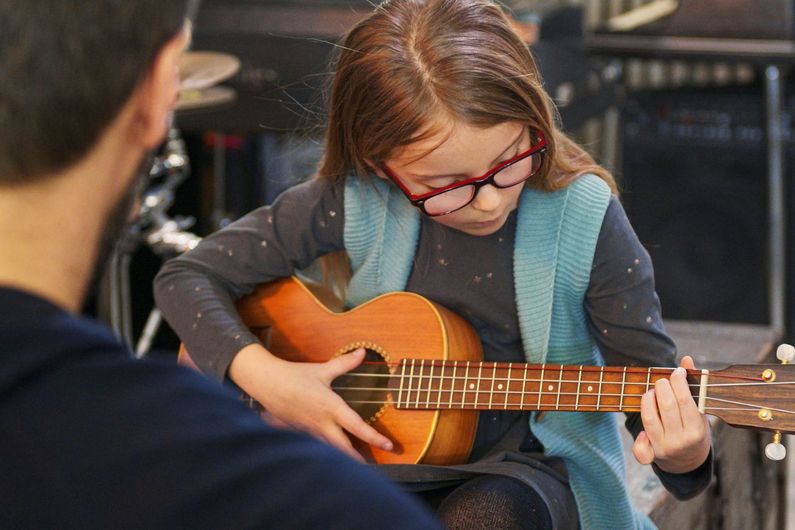Learning to play a musical instrument does more than create beautiful sounds – it helps children develop crucial cognitive abilities, particularly their capacity to focus and resist distractions. A comprehensive analysis of research spanning four decades reveals that musical training provides significant benefits for children’s mental development, with implications that could reshape educational policy.
Published in Cognition | Estimated reading time: 6 minutes
When a child learns to play an instrument, something remarkable happens in their brain. A new meta-analysis conducted at Université de Montréal has revealed that music training significantly enhances children’s “inhibition control” – their ability to focus on tasks while resisting distractions and impulsive reactions.
The study, led by doctoral student Kevin Jamey under the supervision of psychology professor Simone Dalla Bella, synthesized findings from 22 studies across nine countries, involving 1,734 children between ages 3 and 11. Their analysis included eight randomized controlled trials – the gold standard in research – alongside 14 longitudinal studies, providing a robust foundation for their conclusions.
The results were striking. As Jamey explains, music training showed a “moderate to large” positive effect on inhibition control, with randomized controlled trials demonstrating an average effect size of 0.60. To put this in perspective, Jamey notes that “Starting from an effect size of 0.4, we can begin making public policy recommendations.” The longitudinal studies revealed a more modest but still significant effect size of 0.36.
Professor Dalla Bella emphasizes the significance of these findings: “These findings exceed those of previous meta-analyses of the transfer effect of music training on executive function. They also show greater effectiveness than other cognitive training methods such as video games.”
The research revealed that one-on-one music instruction, particularly outside school settings, proved most effective. “Our meta-analysis looked at various music learning formats, including private and group lessons, and we found that one-on-one lessons, especially outside a school setting, seemed to have the strongest impact, since there are fewer distractions for both student and teacher,” Jamey explains.
Encouragingly, the benefits appear achievable with moderate effort – just 300 minutes of total music training showed measurable improvements in inhibition control. However, the researchers emphasize that structure matters. As Dalla Bella notes, “To be truly effective, musical learning must be guided and use scientifically proven methods. While music doesn’t improve everything, it does appear to have benefits for certain cognitive functions that deserve further study.”
The implications extend beyond typical childhood development. The researchers express optimism about potential applications for children with developmental disorders, suggesting that “specific types of music training could benefit children with autism spectrum disorder or attention deficit disorder with or without hyperactivity.”
These findings contribute to a growing body of evidence supporting the reintroduction of music education in primary schools. As the researchers conclude, “We are very close to being able to make a formal recommendation. The potential benefits are too great to ignore.”
Key Terms
- Inhibition Control
- The cognitive ability to focus on tasks while resisting distractions and automatic or impulsive reactions.
- Meta-Analysis
- A research method that combines and analyzes results from multiple scientific studies to identify patterns and draw stronger conclusions.
- Effect Size
- A statistical measure that indicates the strength of a relationship between variables, with larger numbers showing stronger effects.
Test Your Knowledge
How many minutes of music training were needed to see improvements in inhibition control?
The data indicated that 300 minutes of music training was enough to see an improvement in inhibition control.
What was the effect size found in the randomized controlled trials?
The randomized controlled trials showed an average effect size of 0.60, which was considered statistically significant.
Which format of music instruction showed the strongest impact on cognitive development?
One-on-one lessons, especially outside a school setting, showed the strongest impact due to fewer distractions for both student and teacher.
How did music training’s effectiveness compare to other cognitive training methods?
According to Professor Dalla Bella, the findings exceeded previous meta-analyses of music training’s effects and showed greater effectiveness than other cognitive training methods such as video games.
Enjoy this story? Subscribe to our newsletter at scienceblog.substack.com.


